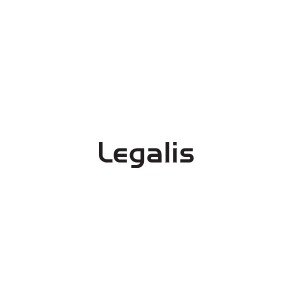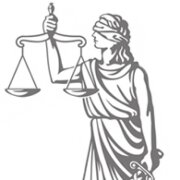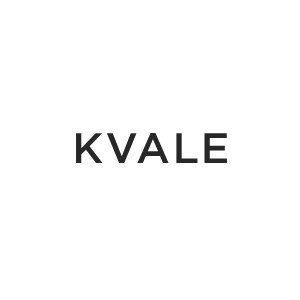Best Environmental Law & Compliance Lawyers in Norway
Share your needs with us, get contacted by law firms.
Free. Takes 2 min.
Or refine your search by selecting a city:
List of the best lawyers in Norway
About Environment Law in Norway
Environment law in Norway is a comprehensive and pivotal aspect of its legal framework, deeply entwined with the country’s commitment to preserving its natural heritage. Norway is known for its strict environmental regulations aimed at protecting its rich biodiversity, pristine landscapes, and marine environments. Environmental law here covers various aspects, including sustainable resource management, pollution control, wildlife protection, and climate change mitigation. These laws stem from both national legislation and international agreements, reflecting Norway's global environmental commitments.
Why You May Need a Lawyer
Individuals or organizations may need legal assistance regarding environmental issues for several reasons. Common situations include disputes over land use or natural resource exploitation, compliance with environmental regulations, addressing pollution or contamination incidents, and navigating the legal implications of climate change. Additionally, businesses may seek legal advice when engaging in activities that affect the environment, such as construction, energy production, or waste management, to ensure they comply with the stringent Norwegian environmental standards.
Local Laws Overview
Norway has a robust framework of environmental laws that are critical to understanding for anyone involved in activities impacting the environment. Key legislation includes the Planning and Building Act, which governs land use and development; the Pollution Control Act, which regulates emissions and waste; and the Nature Diversity Act, which focuses on preserving biodiversity. Additionally, the Climate Change Act sets the legal foundation for Norway's climate policy, aiming for significant emissions reductions. Understanding these laws is essential for compliance and informed decision-making.
Frequently Asked Questions
What is the Nature Diversity Act?
The Nature Diversity Act is a fundamental part of Norwegian environmental law focused on the preservation of natural diversity. It provides guidelines for sustainable use and protection of biodiversity, ecosystems, and landscape characteristics.
How does the Pollution Control Act affect businesses in Norway?
The Pollution Control Act establishes measures to prevent and reduce pollution and waste. Businesses must adhere to its regulations to minimize their environmental impact and avoid legal repercussions.
What are Norway's obligations under international environmental agreements?
Norway is a party to numerous international agreements, including the Paris Agreement, the Convention on Biological Diversity, and more, committing to various environmental protection and climate change mitigation targets.
Who enforces environmental laws in Norway?
The Norwegian Environment Agency is the primary body responsible for enforcing environmental laws, alongside local municipal authorities and other governmental agencies.
What should I do if I suspect environmental pollution?
If you suspect environmental pollution, you should contact the local municipal environmental department or the Norwegian Environment Agency to report the issue.
How can businesses ensure compliance with Norwegian environmental laws?
Businesses can ensure compliance by staying informed of legal requirements, conducting regular environmental impact assessments, and seeking legal advice when necessary.
Are there penalties for violating environmental laws in Norway?
Yes, violations can result in significant penalties, including fines, mandatory remediation actions, and, in severe cases, criminal charges.
What role do public consultations play in environmental decisions?
Public consultations are an integral part of the decision-making process for environmental matters in Norway, allowing stakeholders and citizens to voice their concerns and influence outcomes.
How does the Climate Change Act impact Norwegian industries?
The Climate Change Act establishes targets for reducing greenhouse gas emissions, compelling industries to innovate and adopt more sustainable practices to meet these goals.
Can individuals take legal action against environmental violations?
Yes, individuals can take legal action if they believe there has been an environmental violation that impacts them, by lodging complaints with the relevant authorities or pursuing litigation.
Additional Resources
Several resources can be valuable for individuals seeking more information on environmental law in Norway. The Norwegian Environment Agency provides a wealth of information and guidance on environmental regulations. The government’s official website offers updates about policy changes and environmental initiatives. Non-governmental organizations like the Norwegian Society for the Conservation of Nature and the Bellona Foundation are also great sources of knowledge and advocacy on environmental matters.
Next Steps
If you need legal assistance concerning environmental issues in Norway, consider contacting an attorney specializing in environmental law to provide advice tailored to your situation. It's advisable to gather all relevant documentation and information beforehand. Start by reaching out to local law firms or legal associations for consultations, or use online directories to find qualified lawyers who have expertise in environmental regulations.
Lawzana helps you find the best lawyers and law firms in Norway through a curated and pre-screened list of qualified legal professionals. Our platform offers rankings and detailed profiles of attorneys and law firms, allowing you to compare based on practice areas, including Environmental Law & Compliance, experience, and client feedback.
Each profile includes a description of the firm's areas of practice, client reviews, team members and partners, year of establishment, spoken languages, office locations, contact information, social media presence, and any published articles or resources. Most firms on our platform speak English and are experienced in both local and international legal matters.
Get a quote from top-rated law firms in Norway — quickly, securely, and without unnecessary hassle.
Disclaimer:
The information provided on this page is for general informational purposes only and does not constitute legal advice. While we strive to ensure the accuracy and relevance of the content, legal information may change over time, and interpretations of the law can vary. You should always consult with a qualified legal professional for advice specific to your situation.
We disclaim all liability for actions taken or not taken based on the content of this page. If you believe any information is incorrect or outdated, please contact us, and we will review and update it where appropriate.
Browse environmental law & compliance law firms by city in Norway
Refine your search by selecting a city.















